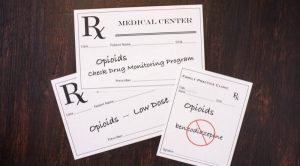As medical science continues to argue against forced opioid tapering, the folks at PROP are promoting the CDC Guideline for Prescribing Opioids for Chronic Pain.
A study of 15,000 patients published this month shows that variability in opioid dose may be a risk factor for opioid overdose, suggesting that practitioners should seek to minimize dose variability when managing long-term opioid therapy.
As bioethicist Michael Schatman tweeted: This is an “extremely important study! Stability of dosage, not actual dosage itself, is key to prescription opioid safety!”
You’ll remember at the end of the year, pain physicians and psychologists published a letter in the Journal of Pain Medicine that argued mandated opioid tapers requiring “aggressive” dose reductions over a defined period, even when that period is an extended one, could be problematic.
They called for “compassionate systems for opioid tapering” in carefully selected patients, with close monitoring and realistic goals. They also call for “patient advisory boards — to ensure that patient-centered systems are developed and patient rights are protected.”
PROP Trying to Beef Up CDC Opioid Guideline
A group called PharmedOut, a partner of Physicians For Responsible Opioid Prescribing (PROP) is circulating a petition in support of the controversial CDC Opioid Guideline.
“The opioid industry’s efforts to controversial-lize opioid prescribing guidance from CDC are gaining momentum,” the petition says.
“It is imperative that policy decisions be based on scientific evidence and public health principles, not commercial concerns and unrepresentative patient anecdotes. The CDC Guideline contains reasonable, unbiased and scientifically grounded recommendations that promote cautious prescribing. Industry-generated efforts to undermine this Guideline must be vigorously opposed.”
Trump Claiming Progress Against Opioid Overdoses.
President Trump spoke at 2019 Rx Drug Abuse and Heroin Summit in Atlanta this week to update on what a spokesman said is, “the administration’s progress and success to reduce demand, raise awareness and save lives.”
The opioid epidemic is now driven by illicit heroin and fentanyl. Those two drugs were implicated in the vast majority of opioid overdoses reported in 2017, according to federal figures.
